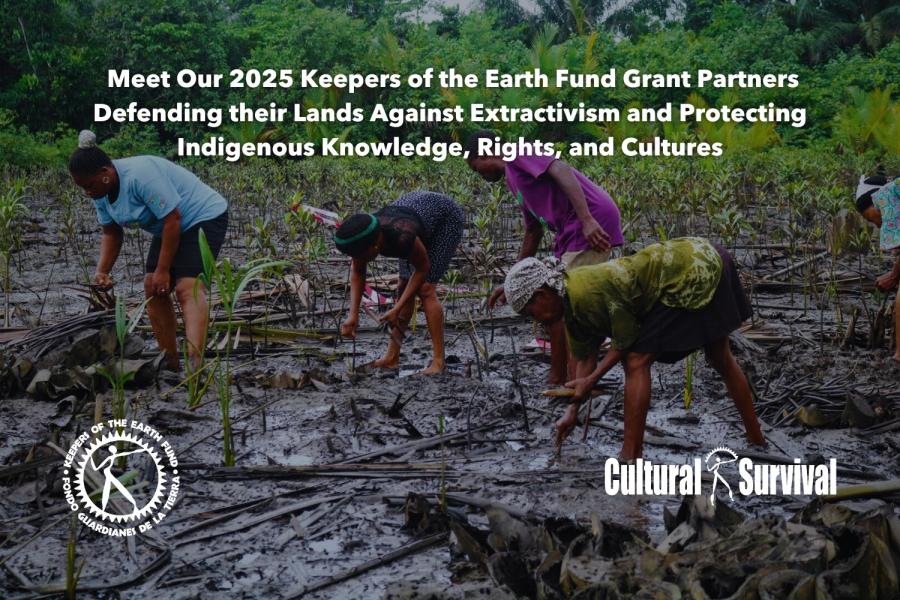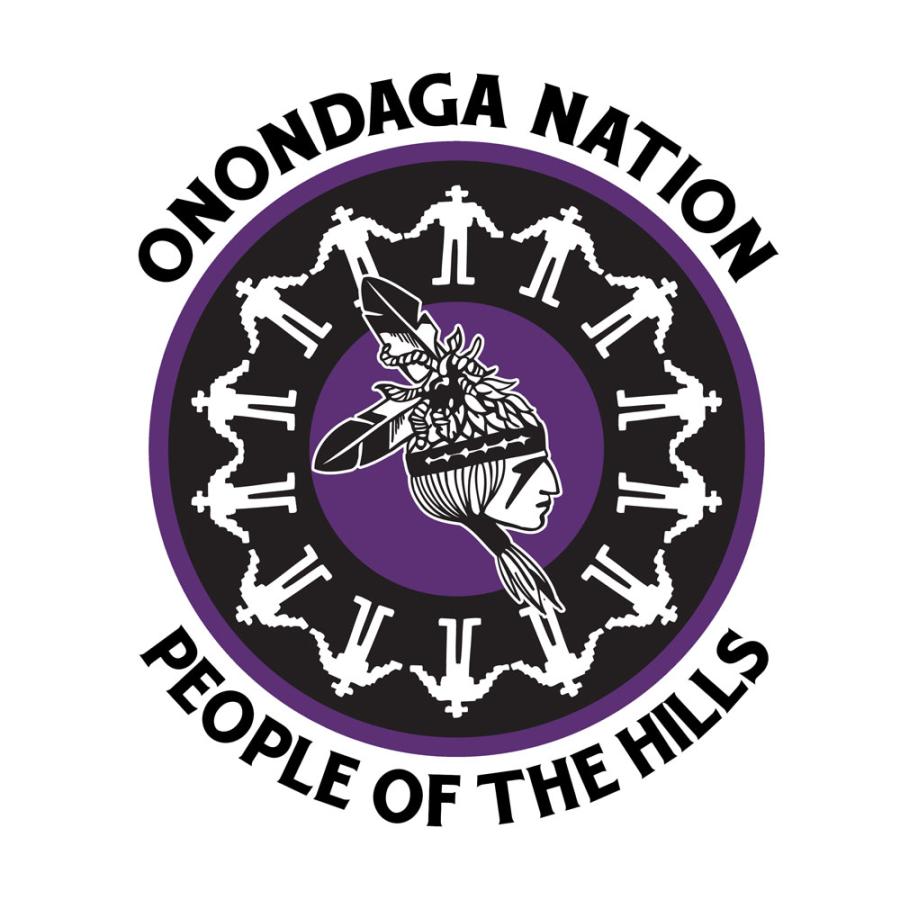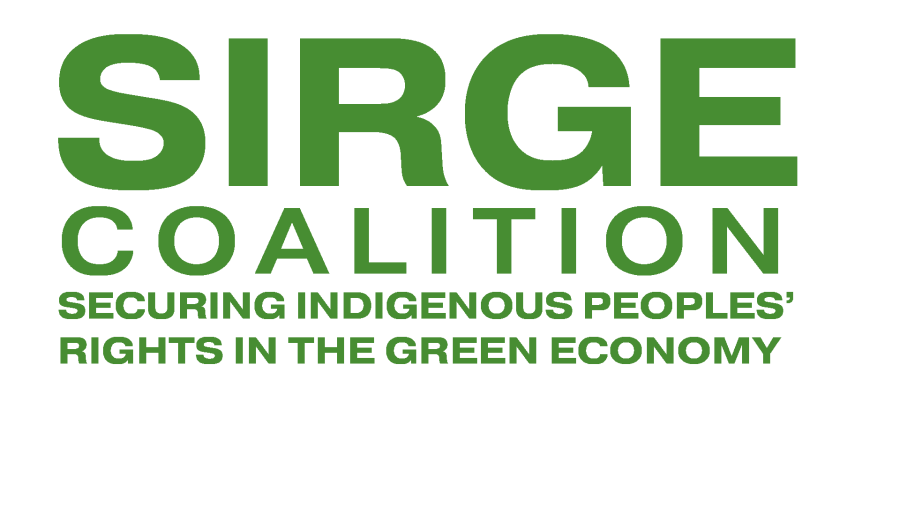In November 2020, many Indigenous communities in Nicaragua, Honduras, Guatemala, Colombia, southern Mexico and other territories of Abya Yala (America) were recently impacted by two category 4 and 5 hurricanes in less than 15 days, leaving dozens of deaths, countless material losses and much anguish about the future for thousands of families who lost everything because of the cataclysms.
Hurricanes Eta and Iota were very intense, with winds greater than 250 km per hour on the Saffir-Simpson scale. Since October, four storms named Delta, Epsilon, Eta and Iota (all names taken from the Greek alphabet because the regular list of storm names have been exhausted) affected the region. The 2020 hurricane season has been the most active in history. Scientists agree that climate change is impacting our planet, affecting the nature of storms, causing higher-speed winds, heavier rains, and affecting larger geographic areas.
Nicaragua was the eye of Hurricane Eta. At 4:00am on November 3, 2020, the category 4 hurricane made landfall south of Bilwi, Puerto Cabeza, Nicaragua's North Caribbean Autonomous Region and 13 days later, the strongest hurricane Lota finished devastating the north center and the north Caribbean of Nicaragua, strongly affecting the Chorotega, Mayagna, and Miskito Peoples. Fortunately, the timely evacuation of populations managed to prevent the death of hundreds of citizens.
In the Ixil region of Nebaj, El Quiché, Guatemala, 50 communities were affected by storms Eta and Iota and the communication channels in the communities collapsed. “There are families who were sheltered due to the damage caused to their homes. Because of landslides, their houses were buried,” said Elena Brito, director of Tijaxil Tenam Community Radio. “This situation leaves great material and human losses, making the situation we were experiencing with the pandemic even more complex. The general population is living in extreme poverty. We believe that this is happening because of the violations that are committed against the planet, the principles and values respecting Mother Nature are no longer practiced and we must hold extractivism and pollution responsible. Currently, the Ixil people do not have the support of the municipal or state authorities and we ask the international community to join in supporting us,” Brito mentions. The two storms caused damage to crops of several Indigenous communities, increasing the prices of basic grains, among other products, exacerbating the crisis of food sovereignty in the Ixil territory.
In Honduras, grassroots organizations organized to collect aid for affected families in response to the hurricanes in the area. The Central American Bank for Economic Integration (CABEI) granted the governments of Nicaragua and Honduras a donation of one million dollars to be shared equally. The governments of El Salvador, Cuba, the United States and the European Union also donated to address the emergency. This aid is still insufficient to meet the demand.
The Inter-American Development Bank (IDB) announced in a statement that it met with leaders and ministers from Belize, Costa Rica, Honduras, El Salvador, Guatemala, and Nicaragua, along with the presidents of the World Bank Group, David Malpass, and the Central American Bank for Economic Integration (CABEI), Dante Mossi, to update the action plan to help impacted countries cope with the damage caused by the hurricanes.
“We have barely counted the effects of Eta. Only in Puerto Cabeza, it is estimated that more than 800 houses were totally damaged, and many more with partial damage. The immediate needs presented by the leaders are water, food, and clothing, and in the medium and long term, tools are needed to clean up their communities and to rebuild homes. There are many needs that still need to be assessed, among them the reactivation of productive plots so that there is not a problem with food security,” highlights José Colleman, Miskito Indigenous leader and collaborator of Radio Yapti Tasba in Bilwi, Puerto Cabeza, Nicaragua.
The Role of Indigenous Community Radio in Natural Disasters
Community radio stations in Central America and Mexico have played an important role in reporting on daily events. The stations expand their coverage when natural disasters such as earthquakes, tsunamis, flooding, and landslides. In recent months they have been covering the COVID-19 pandemic and most recently the hurricanes in the region.
Given the abandonment of national governments, the alternative for organizing Indigenous Peoples in emergency contexts is Indigenous community radio, as it is the only source of truthful and contextualized information. Hurricanes in southeastern Mexico have left many communities flooded. In the municipality of Oxchuc, Chiapas, the water level continues to rise and the effects are beginning to affect the daily life of the population. Community Radio Muk'ul Lum, "The Voice of Indigenous Peoples," has had to vacate their facilities, as it was completely flooded, as was the home of the station coordinator.
In Guatemala, community radio station leaders and volunteers implemented prevention campaigns and food collection days. "Radio Jolom Konob of Santa Eulalia, Huehuetenango, was reporting in coordination with the local municipality during hurricane Eta on the devastating effect of this natural phenomenon," said María Pedro, president of the station. The station also reported on the displacement of families, deaths caused by avalanches, and on the rescue efforts of relief forces in the most vulnerable places.
In Santa Eulalia, the collection center was at Radio Jolom Konob’s booth. School teachers joined in the organizing efforts and local residents contributed what little they had to distribute to affected families in San Juan Ixcoy and Soloma. "In this last municipality the death of seven residents is lamented," said Lorenzo Mateo, director of Radio Jolom Konob.
"The audience asked to start a food drive. Also, a man came to offer his vehicle to transport the products. This motivated us to take up the call," highlights Carlos Bal, director of the Radio San Juan de Comalapa, Guatemala. “The local cable company also joined the call, 219 families came to contribute, we collected 27 quintals of food and clothing, which we went to distribute to the affected communities in Cobán, it was more than nine hours of travel to reach the community of Queja in San Cristóbal Verapaz. Then, we moved to Santa Elena and Chixoy. When making the deliveries, people showed their gratitude to the radio and the population of Comalapa, indicating that there was little aid that arrived here. It is sad how the national government and the local mayor's office have forgotten these low-income communities, who were left with nothing, in the face of the onslaught of hurricanes Eta and Iota,” says Bal.
In Xajaxac, Sololá, Community Radio Juventud, together with the ancestral authorities alerted its listeners as well as the residents who were located in risk areas. "Fortunately there was no damage in the places,” says Olga Ajcalón, director of the station.
Dixon Morales, Garífuna leader and ODECO community radio director in La Ceiba, Honduras, says: “The response of the State has been bad, they did not take climate projections seriously and there was no preventive plan to avoid misfortunes in the face of hurricanes. In the midst of two major concerns, the pandemic and the hurricanes, the government was more concerned with increasing tourism and the economy, with the holiday of the Morazan week, instead of responding to the population. It almost caught us off guard. Unfortunately, a large number of the negative impacts are on the Indigenous Peoples.”
Morales also shared his concern about the alert they have received from the shelters, about the abuse of girls due to overcrowding and the lack of adequate protection of children. Deputy and Indigenous leader Olivia Zúñiga Cáceres openly expressed to the international community and to the people of Honduras in general, "I invite you to show solidarity with the Lenca people of Opalaca, and to extend your support directly to the communities through from their local leaders."
In Nicaragua, Radio Yapti Tasba in Bilwi, Puerto Cabeza, suffered the loss of its transmission tower and they are currently off air. The winds also caused significant damage to the roof of the station. Juan Herbacio, director of the station, points out that the damages amount to over $3,200 and emphasizes the urgency of being able to restore the community radio, since a large part of the population is informed in the Miskito language through its broadcasts.
“Cultural Survival stands in solidarity with the communities that have been affected by the recent hurricanes. We regret the human and material losses that thousands of Indigenous and non-Indigenous families have suffered in recent days. We call for unity in efforts to find economic resources and food to address this climate emergency. We recognize once again the great importance of the work of community radio stations in keeping the population informed and organized at times like these, especially in their own languages. We reiterate our commitment to continue supporting Indigenous community radio stations in their work,” said Mark Camp, deputy executive director of Cultural Survival.



